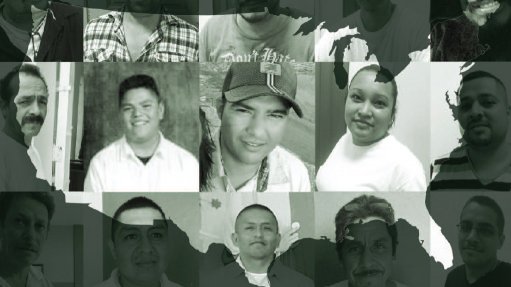
Every day, people who call the United States home—including mothers, fathers, and spouses of US citizens; tax-paying employees; and respected community members—are arrested, locked up, and placed in a deportation system that rarely considers their deep and longstanding ties to the United States before summarily removing them from the country. Under President Donald Trump, border-crossings and thus deportations at the border are down, but immigration arrests and deportations from the interior of the country have skyrocketed—showing the Trump administration’s disregard for the rights of individuals who have built their lives and families here.
Donald Trump launched his campaign for president in 2015 promising a major crackdown on undocumented immigrants, whom he characterised as “bringing crime” and as “rapists.” He told voters that as president he would repeal Deferred Action for Child Arrivals (DACA), a temporary protection from deportation for nearly 800,000 immigrants who arrived in the US as children, build a massive wall along the US-Mexico border, and create “a massive deportation force” to remove millions of people living in the United States without papers.
After President Trump’s inauguration, this anti-immigrant rhetoric was soon reflected in official policy. During his second term in office, President Barack Obama had taken a series of executive actions that offered many unauthorized immigrants with longstanding ties to the US some degree of protection from deportation. Upon assuming office, President Trump moved to reverse all of this, quickly signing two executive orders that made nearly all unauthorized immigrants living in the US priority targets for arrest, detention, and deportation, and revoking Obama administration guidance that prioritised noncitizens who had committed crimes or who were recent border-crossers. Then, in September, the Trump administration repealed DACA, exposing hundreds of thousands of young immigrants who grew up in the US to potential deportation.
The impact of these actions has been immediate and severe. All undocumented people in the US now have reason to fear deportation, regardless of the strength of their ties to the US. And while the number of new border-crossers, and thus summary deportations at the border, has decreased markedly since Trump took office, the number of people seized in the interior of the country—wrenched from their families and communities—has increased sharply. The most dramatic such increase has been among undocumented people without criminal convictions: 28,011 were arrested between inauguration day and the beginning of September, nearly triple the 10,031 in arrested during the same seven-and-a-half-month period in 2016.
This report sets forth the 2017 official data on immigration arrests and deportations and details the often-wrenching human impact of Trump’s policies on undocumented immigrants, their families, and their US communities. The latter analysis draws heavily on 43 in-depth Human Rights Watch interviews with long-term immigrants deported since Trump’s election. Taken together, the data and firsthand accounts illustrate how the enforcement machine President Trump has moved so eagerly to accelerate rarely ever considers people’s deep and longstanding ties to the United States before deporting them.
Report by the Human Rights Watch